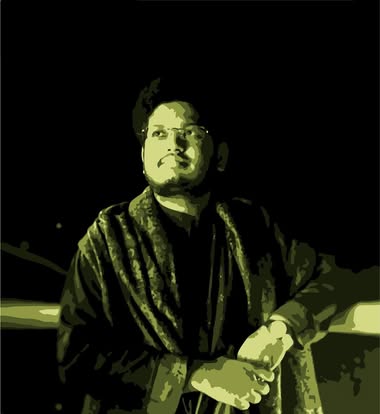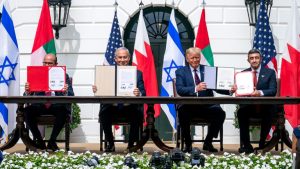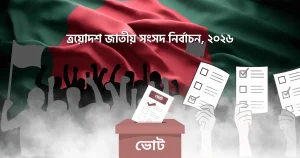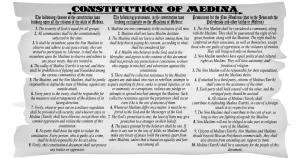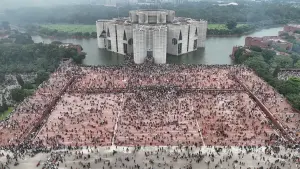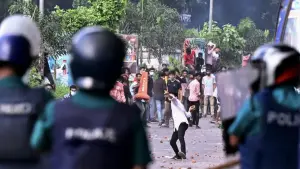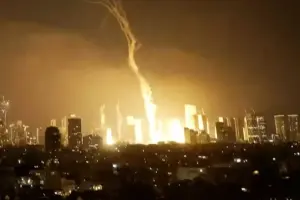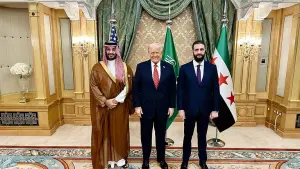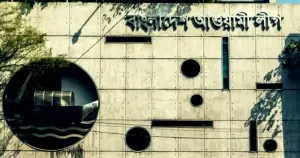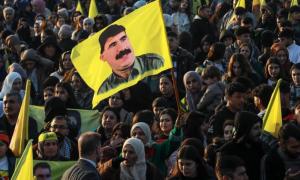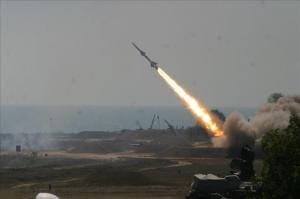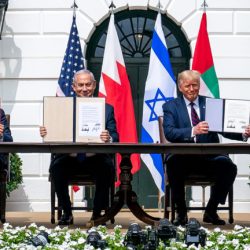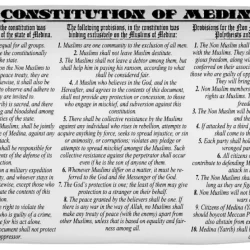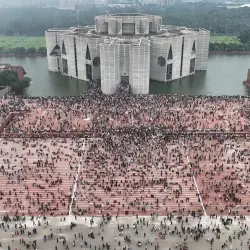The world is changing at a rapid pace and with it, the very fabric of international relations is being redefined. Samuel Huntington, a prominent political scientist, examines how cultural and religious diversity is influencing the future of the globe in his book The Clash of Civilizations and the Remaking of World Order. It is a contentious and significant work that offers a perceptive analysis of the likelihood of conflict in the post-Cold War world.
It has never been more crucial to comprehend how cultural and religious diversity shapes the globe as tensions between the West and Islam, between China and the United States, and between other civilizations increase. Huntington contends in this book that rather than political ideology or national interests, cultural and religious divisions will be the main cause of war in the future. Anyone who wants to comprehend the complicated dynamics of the post-Cold War world and the possibility of civilizational conflict should read this thought-provoking book.
Political scholar Samuel Huntington’s book, The Clash of Civilizations and the Remaking of World Order was initially released in 1996 by Simon & Schuster. The book was highly debated in both scholarly and popular circles, and it swiftly rose to the top of the bestseller list. In the years since it was first published, the book has been widely debated and translated into many different languages.
The Clash of Civilizations and the Remaking of World Order is a tour de force of political analysis, with an engaging and suspenseful writing style that is guaranteed to spark conversation for years to come. So, buckle up and get ready for a wild ride as you delve into the heart of the most pressing global issues of our time.
Read A Diary of a Young Girl: Journey of Survival and Perseverance in Nazi-Occupied Holland
An Overview of the Clash of Civilizations
A well-written and thought-provoking book, The Clash of Civilizations and the Remaking of World Order offer a distinctive viewpoint on the likelihood of violence in the post-Cold War world. The author’s views are presented throughout the book with clarity and thoroughness, which is one of its merits. Even individuals with little background in international affairs can easily appreciate Huntington’s well-organized and logically sound argument.
In “Clash of Civilizations,” Huntington introduces the idea that the world is splitting into various distinct civilizations, each with its own special ideas, values, and traditions. Nine civilizations are mentioned by him, including Western, Confucian, Japanese, Islamic, Hindu, Slavic-Orthodox, Latin American, African, and Sinic. Huntington argues that while each civilization seeks to establish its supremacy and maintain its cultural ideals, encounters between various civilizations will result in conflict. He claims that since Islam and the West are the two most dissimilar and incompatible civilizations, their confrontation will be the main source of tension.
According to Huntington, the power vacuum left by the end of the Cold War and the fall of the Soviet Union is being filled by cultural and religious divides. He contends that as civilizations fight for resources and influence, these disparities will progressively become a source of conflict. The closest and most disparate civilizations, like the West and Islam, would see the fiercest confrontations, according to his predictions.
West v. Islam
In the post-Cold War era, Samuel Huntington criticizes the strong foreign policy of the United States and NATO. He believes that the most violent confrontations would arise between closely related civilizations that have the greatest differences, such as the West and Islam.
Samuel contends that these civilizations’ disparities are firmly anchored in history and culture and are unlikely to be readily reconciled. He contends that Western military interventions in nations with a majority of Muslims have exacerbated tensions between the West and Islam and have been ineffective in attaining their stated objectives.
স্নায়ু যুদ্ধ কাকে বলে? স্নায়ু যুদ্ধের উদ্ভব, বিকাশ ও বর্তমান অবস্থা
He suggests that a number of causes, including the emergence of Islamic fundamentalism, Western military involvement in nations with a majority of Muslims, and cultural disparities regarding matters like women’s rights and democracy, will shape the clash between the West and Islam.
According to Huntington’s perspective on this specific matter, the West and Islam are likely to continue to be at odds for the foreseeable future, and this war will be defined by their disparate cultural and theological traditions. The rise of Islam, he contends, will require the West to adapt, and the West should respect the cultural and religious diversity of Islamic civilizations.
Huntington suggests that rather than competing and clashing, they should discover ways to live side by side and work together to prevent military operations in nations with a majority of Muslims. He also advises that in order to establish points of agreement and settle disputes amicably, the West should communicate with and work with Islamic civilizations.
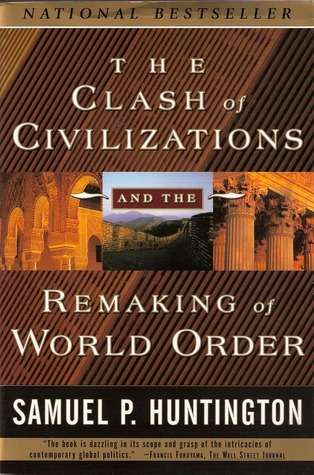
“The West won the world not by the superiority of its ideas or values or religion […] but rather by its superiority in applying organized violence. Westerners often forget this fact; non-Westerners never do.”
-Samuel P. Huntington, The Clash of Civilizations and the Remaking of World Order
What about other Civilizations?
Huntington believes that while his work primarily concentrates on the confrontation between the West and Islam, other civilizations will also have a significant impact on how international relations develop in the future. For instance, he contends that the emergence of China and its interactions with the West will have a significant impact on how future international relations are shaped.
In addition, he predicts that the world will eventually transition to a multi polar system in which several civilizations live and struggle with one another for power and resources. Additionally, he contends that as other civilizations advance, the West will need to adapt or it would lose its position as the world’s superpower.
He offers a succinct and simple explanation of the “Clash of Civilizations” concept, and his division of the world’s civilizations into nine different groupings offers a helpful framework for comprehending the likelihood of conflict. A thorough study of the possibility of a confrontation between these civilizations is also provided by the author, and his perceptions of the friction between the West and Islam are particularly perceptive.
Critique of the limitations and criticisms of the book
Despite the book’s many positive aspects, it is not without flaws and critics. The author’s classification of civilizations is extremely simplistic and does not correctly reflect the complexity and diversity of cultural and religious groupings, according to one criticism of the book. The classification made by the author, according to critics, oversimplifies the nuanced differences between each civilization and overlooks them.
What is America’s Blackwater? How does it terrorize the World?
Another critique of the book is that it overestimates the likelihood of conflict and ignores the possibility of cooperation and collaboration between civilizations. Numerous academics disagree with Huntington’s prediction that conflicts will mostly stem from cultural and religious differences in the future, contending that political, economic, and other variables will also have a big impact on how nations interact with one another.
The book’s impact and relevance in the current context
The Clash of Civilizations and the Remaking of World Order has significantly changed how people view and approach international relations, despite its flaws. The book is still incisive and relevant today, and researchers and decision-makers are still debating and discussing its arguments and theories extensively. The discipline of international relations has been forever changed by Huntington’s discoveries of the possibility of war between civilizations and the significance of cultural and religious differences. These insights have also served to define how individuals view the world. The book makes a significant contribution to our understanding of how conflicts could arise in the world, and its influence and applicability are likely to last for many years to come.
The book offers a provocative and perceptive study of the possibility of violence in the world, and its advantages lie in the author’s arguments’ clarity and thoroughness. Even individuals with little background in international affairs can easily appreciate Huntington’s well-organized and logically sound argument. The novel does have its drawbacks, though. The author’s classification of civilizations has drawn criticism for being overly simplistic and failing to adequately capture the complexity and diversity of cultural and religious groups. Others have countered that the author overestimates the likelihood of conflict and ignores the possibility of cooperation and collaboration between civilizations.
A personal opinion on the book
Highly entertaining and thought-provoking, The Clash of Civilizations and the Remaking of World Order offers a fresh viewpoint on the likelihood of violence in the world. The book is still useful and informative today because of the author’s arguments and theories, which have had a long-lasting influence on how people see and handle international relations. This book comes highly recommended for anyone with an interest in global politics and the likelihood of conflict.
Samuel Huntington’s major work on international relations, The Clash of Civilizations and the Remaking of World Order offer important insights into the likelihood of conflict in the post-Cold War world. The author’s beliefs and arguments have had a long-lasting influence on how people view the world and how cultural and religious diversity might affect intergovernmental interactions. Even though the book has flaws and critics, it nonetheless makes a significant and timely addition to our understanding of the world.
Let’s call Israel’s violence what it is: terrorism, not clashes
The book emphasizes the significance of cultural and religious diversity in determining international relations and offers a distinctive viewpoint on the likelihood of civilizational conflict. A helpful framework for comprehending the possibility of conflict is provided by the author’s division of the world’s civilizations into nine different groupings. In particular, his observations regarding the confrontation between the West and Islam are incisive.
I am also aware of the arguments’ shortcomings and detractors, though. The author’s classification of civilizations, in my opinion, is extremely simplistic and fails to adequately capture the complexity and diversity of different cultural and religious communities. The author’s forecasts of conflict, in my opinion, are unduly negative and fail to consider the possibility of cooperation and collaboration between civilizations.
Recommended Must-read
The Clash of Civilizations and the Remaking of World Order has undoubtedly changed how I view the world and increased my awareness of the likelihood of civilizational conflict. The book has also increased my awareness of the impact that cultural and religious diversity may have on how nations interact with one another. The book has also encouraged me to consider the possibility of cooperation and collaboration between civilizations more critically and to explore for solutions to ease tensions and increase mutual understanding between various cultures and religions.
Dictatorship and Human Rights: The Ongoing Struggle for Freedom
Anyone interested in international relations, conflicts, and the impact of culture and religion on the world should read this book, in my opinion. A significant contribution to our knowledge of the possibility of violence in the globe is made by The Clash of Civilizations and the Remaking of World Order, and its significance and impact are likely to last for many years to come. Regardless of your opinion of the author’s claims, the book is undoubtedly worthwhile to read for the viewpoints and insights it offers. But it’s crucial to approach the book with an open mind and a critical eye, keeping in mind the arguments’ shortcomings and criticisms.
